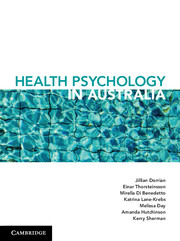76 results
Characterization of alteration products in tephra from Haleakala, Maui: A visible-infrared spectroscopy, Mössbauer spectroscopy, XRD, EMPA and TEM study
-
- Journal:
- Clays and Clay Minerals / Volume 55 / Issue 1 / February 2007
- Published online by Cambridge University Press:
- 01 January 2024, pp. 1-17
-
- Article
-
- You have access
- Export citation
REASON AND ARGUMENT IN PLATO AND ARISTOTLE - (D.) Scott Listening to Reason in Plato and Aristotle. Pp. x + 268. Oxford: Oxford University Press, 2020. Cased, £65, US$85. ISBN: 978-0-19-886332-8.
-
- Journal:
- The Classical Review / Volume 72 / Issue 1 / April 2022
- Published online by Cambridge University Press:
- 21 October 2021, pp. 70-72
- Print publication:
- April 2022
-
- Article
- Export citation
3 - Mid-infrared (Thermal) Emission and Reflectance Spectroscopy
- from Part I - Theory of Remote Compositional Analysis Techniques and Laboratory Measurements
-
-
- Book:
- Remote Compositional Analysis
- Published online:
- 15 November 2019
- Print publication:
- 28 November 2019, pp 42-67
-
- Chapter
- Export citation
The Idea of Accountable Office in Ancient Greece and Beyond
-
- Journal:
- Philosophy / Volume 95 / Issue 1 / January 2020
- Published online by Cambridge University Press:
- 04 November 2019, pp. 19-40
- Print publication:
- January 2020
-
- Article
- Export citation
A Defense of Rule: Origins of Political Thought in Greece and India. By Stuart Gray. New York: Oxford University Press, 2017. 304p. $78.00 cloth.
-
- Journal:
- Perspectives on Politics / Volume 16 / Issue 3 / September 2018
- Published online by Cambridge University Press:
- 21 August 2018, pp. 813-814
- Print publication:
- September 2018
-
- Article
- Export citation
8 - Uncertainty, Action and Politics
- from Part II - Science, Agency and the Future
-
-
- Book:
- Nature, Action and the Future
- Published online:
- 12 January 2018
- Print publication:
- 25 January 2018, pp 157-179
-
- Chapter
- Export citation
A Media Analysis of Canadian Disasters: How are Capability and Vulnerability Framed?
-
- Journal:
- Prehospital and Disaster Medicine / Volume 32 / Issue S1 / April 2017
- Published online by Cambridge University Press:
- 20 April 2017, p. S179
- Print publication:
- April 2017
-
- Article
-
- You have access
- Export citation
Capability and Vulnerability: A Discourse Analysis of Multi-Jurisdictional Emergency Planning Documents
-
- Journal:
- Prehospital and Disaster Medicine / Volume 32 / Issue S1 / April 2017
- Published online by Cambridge University Press:
- 20 April 2017, pp. S182-S183
- Print publication:
- April 2017
-
- Article
-
- You have access
- Export citation

Health Psychology in Australia
-
- Published online:
- 21 June 2018
- Print publication:
- 14 February 2017
-
- Textbook
- Export citation
Contents
-
- Book:
- Health Psychology in Australia
- Published online:
- 21 June 2018
- Print publication:
- 14 February 2017, pp v-viii
-
- Chapter
- Export citation
Frontmatter
-
- Book:
- Health Psychology in Australia
- Published online:
- 21 June 2018
- Print publication:
- 14 February 2017, pp i-iv
-
- Chapter
- Export citation
Glossary
-
- Book:
- Health Psychology in Australia
- Published online:
- 21 June 2018
- Print publication:
- 14 February 2017, pp 331-341
-
- Chapter
- Export citation
Index
-
- Book:
- Health Psychology in Australia
- Published online:
- 21 June 2018
- Print publication:
- 14 February 2017, pp 342-366
-
- Chapter
- Export citation
2 - Popular sovereignty as control of office-holders
-
-
- Book:
- Popular Sovereignty in Historical Perspective
- Published online:
- 05 March 2016
- Print publication:
- 24 March 2016, pp 52-72
-
- Chapter
- Export citation
DIALOGUE IN PLATO - (A.G.) Long Conversation and Self-Sufficiency in Plato. Pp. viii + 184. Oxford: Oxford University Press, 2013. Cased, £30, US$55. ISBN: 978-0-19-969535-5.
-
- Journal:
- The Classical Review / Volume 64 / Issue 2 / October 2014
- Published online by Cambridge University Press:
- 13 June 2014, pp. 395-397
- Print publication:
- October 2014
-
- Article
- Export citation
10 - Claims to rule: the case of the multitude
-
-
- Book:
- The Cambridge Companion to Aristotle's Politics
- Published online:
- 18 December 2013
- Print publication:
- 29 August 2013, pp 247-274
-
- Chapter
- Export citation
List of contributors
-
-
- Book:
- The Cambridge Companion to Aristotle's Politics
- Published online:
- 18 December 2013
- Print publication:
- 29 August 2013, pp ix-xii
-
- Chapter
- Export citation
Malcolm Schofield bibliography 1970–2012
-
- Book:
- <I>Politeia </I>in Greek and Roman Philosophy
- Published online:
- 05 June 2013
- Print publication:
- 01 August 2013, pp 349-355
-
- Chapter
- Export citation
Parti - The Vocabulary of Politics
-
- Book:
- <I>Politeia </I>in Greek and Roman Philosophy
- Published online:
- 05 June 2013
- Print publication:
- 01 August 2013, pp 13-116
-
- Chapter
- Export citation

